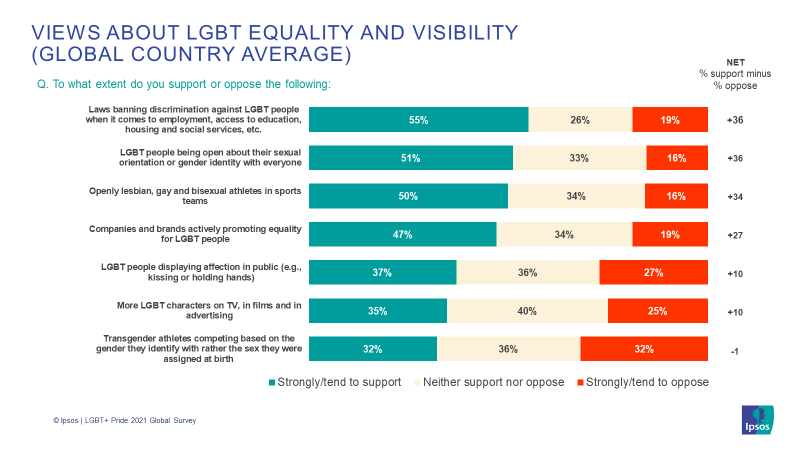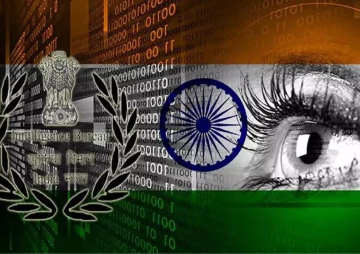
The “pink economy”, also known as the “pink market” or “rainbow economy”, denotes the economic influence of non-heterosexual individuals. While the 2011 census recognised a fraction of this population under the ‘other category,’ estimates based on the Kinsey scale reveal a substantial presence of around 135 million LGBTQ+ individuals in India, constituting approximately 10 percent of its 1.4 billion population. This sizable demographic underscores the significant impact of the LGBTQ+ community on the Indian economy, not only through their production and consumption potential but also the associated market dynamics.
With an estimated purchasing power of US$ 168 billion in India (in nominal GDP terms), the emergence of the pink economy signifies a noteworthy shift in the country’s economic discourse.
With an estimated purchasing power of US$ 168 billion in India (in nominal GDP terms), the emergence of the pink economy signifies a noteworthy shift in the country’s economic discourse. Thus, an intricate analysis of the interlinkages between the LGBTQ+ community, societal norms, and their consequential effects on the economy becomes pertinent.
The Indian scenario
The emergence of India’s pink economy represents a sizable demographic that can wield considerable influence over the nation's economy. However, the state of this economy is rooted in the pervasive stigma and discrimination against the LGBTQ+ community. This observation aligns with the principles of queer economics, highlighting how societal attitudes can shape economic outcomes. Evidence suggests a direct correlation between the marginalisation of certain groups within society and a decline in Gross Domestic Product (GDP), indicating that stigma and discrimination are, in fact, costly to economies.
Examining the status of the LGBTQ+ community in India reveals a distressing pattern of discrimination across various aspects of their lives. From facing abuses at home to being ostracised by their communities, these individuals confront numerous challenges, leading to high dropout rates in schools and limited access to formal education. This educational disadvantage, in turn, restricts their employment opportunities, contributing to a cycle of discrimination that not only affects them individually but also, in turn, hampers the nation's human capital base and successive economic growth trajectories.
From facing abuses at home to being ostracised by their communities, these individuals confront numerous challenges, leading to high dropout rates in schools and limited access to formal education.
The cost of homophobia that India bears spans from 0.1 per cent to 1.7 per cent of the GDP, translating to losses ranging between 112 billion rupees and 1.7 trillion rupees. The core challenge stems from the pervasive roots of stigma and discrimination, which manifests in constraints on labour supply and reduced productivity, which has subsequent losses in economic output. These adverse effects are intricately linked to elevated rates of poverty, depression, and suicide within the LGBTQ+ community, culminating in significant socio-economic setbacks. Thus, understanding the dynamics of the pink economy within the context of societal attitudes is crucial while striving for inclusive economic growth—a necessary condition for sustainable development.
The correlation between inclusivity and economic advancement is apparent and significant. A 2017 UN Human Rights Office report lays down crucial directives which form the bedrock for LGBTQ inclusion in the corporate realm. Corporations are, however, increasingly recognising LGBTQ employment not just as a social responsibility but as a strategic business move. Many prominent entities have made strides towards inclusive business practices that support the LGBTQ+ community. The table below summarises a few prominent ones.
Table 1: A Few LGBTQ+ Inclusion Initiatives
| Report |
Corporates |
Key Contentions |
Recommendations |
| A Manifesto for Trans Inclusion in the Indian Workplace |
Godrej |
Adherence to global standards of LGBTQ+ policies is necessary for: o Enhancing global competitiveness o Attracting diverse talent o Building brand image o New market opportunities and revenue streams |
o Anti-Discrimination workplace policy o Inclusive HR Approach o Awareness programs o Health insurance and related benefits |
| Creating Inclusive Workplaces for LGBT Employees in India - A Resource Guide for Employers |
Community Business - Sponsors are Goldman Sachs, IBM, and Google |
o Economic case for LGBTQ inclusion by unlocking the latent potential of LGBT individuals o An inclusive LGBTQ space would create a dual appeal to both employees and customers |
o Anti- workplace harassment policies o Supportive HR practices o LGBT employee support network o LGBT-specific benefits o Respectful LGBT marketing o Include gender identity and sexual orientation as optional data points in employee surveys in India |
| The Economic & Business Case |
Open for Business – sponsors are Accenture, Brunswick, and Thomas Reuters |
The economic argument for promoting LGBT+ inclusion is set to positively effect: o Economic Performance o Business Performance o Individual Performance |
o Partnering with LGBTQ+ groups o Support existing legal redress o Advocate for local policy changes in LGBTQ+ community |
| Deloitte Global 2023 LGBT+ Inclusion @ Work |
Deloitte |
o LGBTQ+ inclusion ensures enhanced workplace dynamics o Identifies avenues for organisations to enhance the experiences of their LGBT+ workforce |
Recognize and address the diverse experiences of LGBT+ employees, acknowledging intersectional aspects. |
Source: Author’s own, compiled from multiple sources
A P-inclusive future
A 27-market survey conducted by Ipsos in 2021, interviewing 19,069 adults aged 16-74, shows widespread support for corporate activism promoting equality, acceptance of LGBT individuals being open about their orientation, and increased representation in media. Varying opinions were observed across countries regarding the openness of transgender athletes to compete according to their identified gender, as can be seen in the following figure.
Figure 1: Views on LGBT Equality and Visibility

Source: IPSOS, 2021 LGBT+ Pride Global Survey
In India, Bengaluru stands out as a prime example of an inclusive corporate culture. Beyond its significant contribution of 10 percent to the country's GDP, it exemplifies an LGBT-friendly city, where multinational companies find the city's inclusive atmosphere conducive, contributing to both their success and income growth. To bring about this transformative change at the national level, a holistic social, economic and legal strategy would help India tap into the pink economy. The key focus areas include:
- Research and development: Initiate comprehensive research to gain deeper insights into the experiences, challenges, and needs of the LGBTQ+ community in India. This data-driven approach would enable the development of targeted interventions to address the specific concerns and ensure inclusivity.
- Anti-discrimination workplace policy: India lacks a codified anti-discrimination law regulating employees in the private sector. Although many prominent entities have started developing specific inclusive policies, there is no accountability mechanism in place, which needs to be addressed.
- Inclusive education and awareness: Incorporating LGBTQ+ curricula and providing inclusive training to educators will help create inclusive learning environments. Educational institutions becoming focal points, bringing about a transformation in societal attitudes and behaviors, effectively also addressing the dropout rates of this community.
- Economic empowerment initiatives: Develop programmes that target upskilling or reskilling the LGBTQ+ community, in addition to supporting entrepreneurship initiatives with grants and loans.
Finally, the pink economy in India demands a collaborative effort to harness its potential. Unlocking the economic potential of the LGBTQ+ community will enhance the country's economic progress by tapping into diverse talents, driving innovation, and fostering sustainable economic growth.
Sharon Sarah Thawaney is the Executive Assistant to the Director of ORF Kolkata at the Observer Research Foundation.
The views expressed above belong to the author(s). ORF research and analyses now available on Telegram! Click here to access our curated content — blogs, longforms and interviews.





 PREV
PREV


